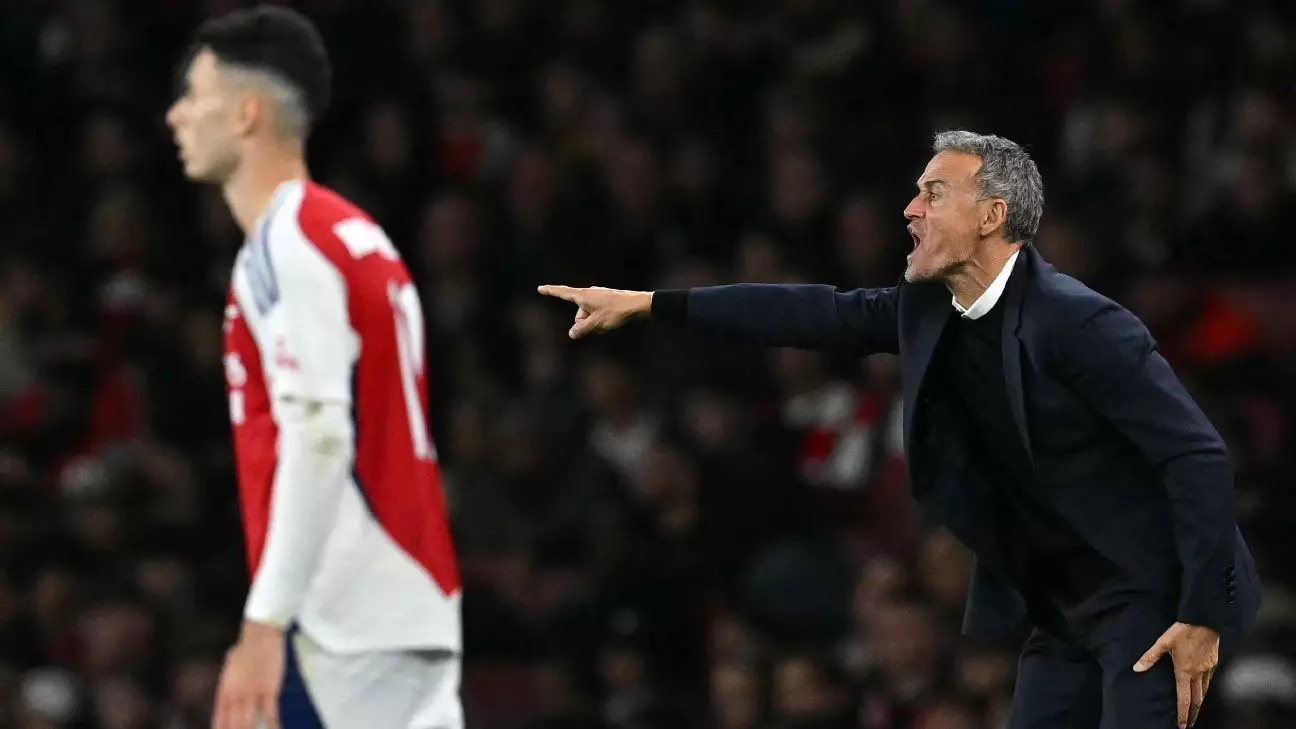Paris Saint-Germain’s recent 2-0 defeat against Arsenal in the Champions League raised more questions than answers about the team’s development under coach Luis Enrique. This loss not only marked a significant moment in the season, being their first defeat, but it also highlighted the glaring difficulties PSG faces in maintaining its position as a European powerhouse. With a string of notable departures such as Kylian Mbappé moving to Real Madrid, the team appears to be undergoing a critical transition.
Against Arsenal, PSG struggled to find their rhythm. Despite having moments of potential—a couple of near misses that hit the woodwork—the French side never truly threatened their opponents. Goals from Kai Havertz and Bukayo Saka allowed Arsenal to take control before halftime, establishing a lead that PSG was unable to overcome. The disparity in performance was evident, as Luis Enrique pointed out in his post-match remarks. He emphasized that PSG’s players were unable to match Arsenal’s intensity and aggression, stating, “It’s impossible to play for a positive result when you don’t win any duels on the pitch.”
The Spaniard’s decisions during the game also came under scrutiny, particularly his choice to omit Ousmane Dembélé. While he cited disciplinary reasons, it raises questions about whether this was a strategic misstep. Dembélé is a player who, if on form, could have added creativity and pace to the attack. Instead, without him, PSG seemed to lack the dynamism needed to counter Arsenal’s high-pressure game.
Luis Enrique accepted his share of the responsibility for the loss, his humility displaying an understanding of the complexity involved in shaping a competitive team in a short span. He acknowledged the limitations of assessing team performance after such a challenging encounter, stating, “I can’t properly evaluate the level of our team; we will have to wait until the end of the season.”
The defeat against Arsenal could serve as a crucial learning experience for PSG. As they navigate through this transitional phase, facing top-tier opposition is essential for growth. The competitive landscape in European football demands resilience, and Luis Enrique’s acknowledgment of the higher quality posed by Arsenal emphasizes the need for PSG to elevate their standards.
Moving forward, PSG’s focus should be on rebuilding their mentality and cohesion as a unit. While they currently sit atop Ligue 1, which provides a level of confidence and assertiveness in domestic competitions, success in Europe remains the ultimate goal. Luis Enrique’s challenge will be to both inspire and develop his players, guiding them through obstacles akin to the one faced at the Emirates.
As the season progresses, the reconciliation of talent with a winning strategy will be critical. Whether Luis Enrique can successfully make PSG relevant on the European stage again amidst the turbulence will determine not only the fate of his side but also his future with the club. The journey ahead will undoubtedly be arduous, but it also holds the potential for great triumph if navigated correctly.

